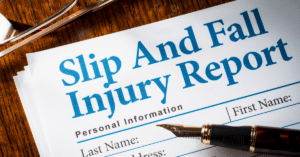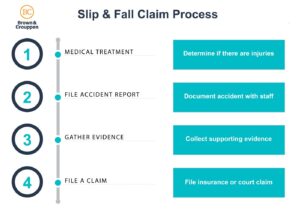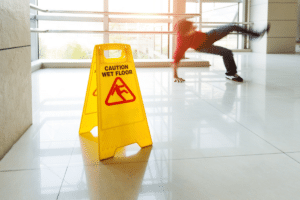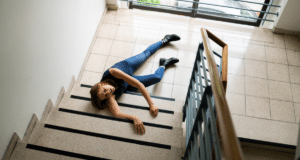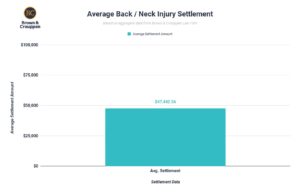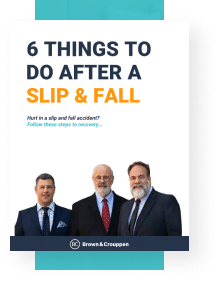WHO ARE THE DEFENDANTS?
- Defendants in premises actions may include:
- owners of the premises;
- tenants or other occupiers of the premises;
- persons hired by the owner or occupier to maintain or repair the premises;
- contractors who are constructing or altering the premises;
- condominium associations; and
- employers who fail to carry worker’s compensation insurance even if there is a “statutory employer” of the injured plaintiff worker.
There may be additional defendants who may be included in many premises liability cases because of negligence or product liability theories. Thus, a child injured while playing on playground equipment may seek to recover against the owner or occupier of the premises and bring a product liability action against the equipment manufacturer. Similarly, an injured person may bring an action against a cleaning company under contract to keep the premises clear of debris or against a person who assumed a duty to maintain the property. However, a third person who has assumed no obligation regarding the premises’ condition, which produced the plaintiff’s injury, is not liable.
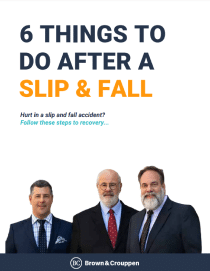
Use our checklist to learn what to do after a fall and understand key legal considerations.
STATUS OF INJURED PARTY
The common law of Missouri bases premises liability on the status of the injured entrant to the land, meaning if you are not on someone’s property but only adjacent to their property, you cannot sue them under premises liability. Premises liability cases divide plaintiffs in such cases into three broad classes: 1) trespassers, 2) licensees, and 3) invitees.
The status of the plaintiff as licensee, invitee, or trespasser is a question of law. A plaintiff’s status may change if the plaintiff strays from the scope of the invitation with which they entered upon the land. For example, if someone is invited to a farmhouse for a party but told to avoid the barn, they would be a licensee in the house but a trespasser if they entered the barn.
A trespasser is a person entering the premises without consent or privilege. The permission to enter may be express or implied.
Licensees enter with the consent of the owner or occupier, but for the licensees’ purposes. A person may be a licensee if the owner or occupier has known of and acquiesced to repeated entries (e.g., where people regularly cross the land as a shortcut). A social guest is a licensee and not a separate class of entrant on land.
Invitees enter with consent and to the benefit of the owner or possessor of the premises. They often are called “business visitors.” An entrant becomes an invitee when the possessor of the premises issues an invitation to expect a material benefit from the visit or extend the invitation to the public generally. There is no requirement that a plaintiff complete a transaction on the premises to be an invitee. A common example would be guests of retail stores or restaurants.
Although a single catastrophic event, such as a building collapse causing many casualties at once, could be suitable for a class action, multiple events at the same location of premises generally are not suitable for a class action, as the circumstances of each injury must be determined individually.
EMPLOYEES OF INDEPENDENT CONTRACTORS
Employees of independent contractors who are covered under the Missouri workers’ compensation law generally may not bring an action against a landowner or occupier for injuries sustained on the defendant’s premises during their employment. This is true regardless of whether the activity in which they were engaged is inherently dangerous unless the defendant exercised direct control over the premises at the time of the injury. Employees of independent contractors can bring an action against the landowner or occupier if the claim is based on the defendant’s negligence in supplying an unsafe appliance or instrumentality for use by the contractor’s employees. Subcontractors owe a duty to exercise reasonable care not to cause injury to employees or others on the job site and are liable for the negligence of their employees.

